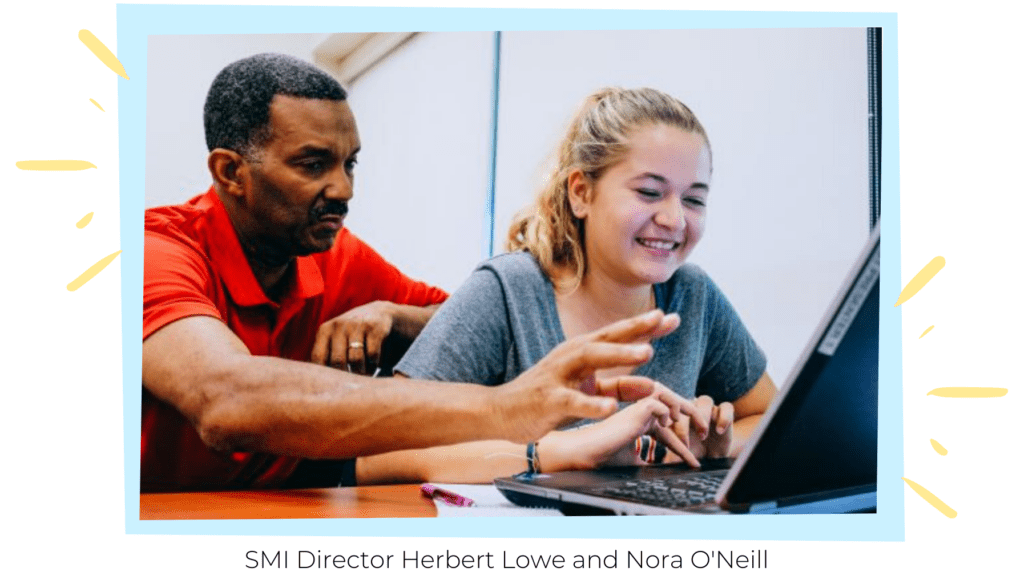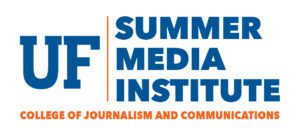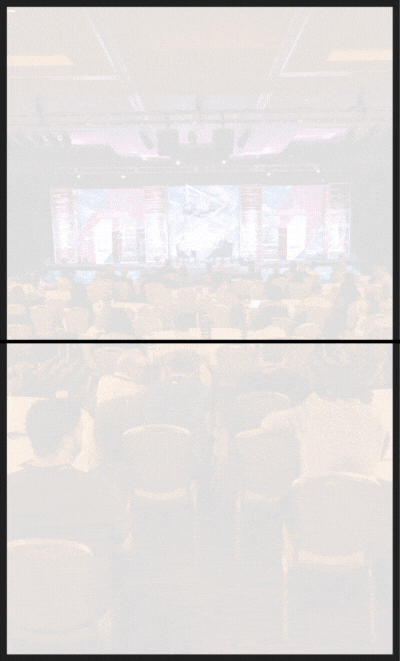
The inaugural WUFT Student Podcast Challenge, spearheaded by the Summer Media Institute at the University of Florida College of Journalism and Communications, is in full swing. Program Associate Nora O’Neill attended the Summer Media Institute as a high school student and is now a journalism undergraduate at the UF.
Under the direction of journalism professor Herbert Lowe, the Institute emphasizes podcasting’s essential role in the field. “Inspiring the next generation of student journalists is the ultimate goal here at SMI,” O’Neill told our editorial team.
This fall’s Student Podcast Challenge, sponsored by WUFT News and the Florida Scholastic Press Association, is open to high school students across the United States. According to O’Neill, “As podcasts become more mainstream, it is up to groups like WUFT and FSPA to encourage young journalists to learn about and experience this new form of storytelling.”
First, second and third place winners will earn a $500, $250 and $100 prize, respectively. Submissions will be accepted until Wednesday, November 27. The WUFT competition follows the same guidelines as the NPR Student Podcast Challenge, and submission to both contests is encouraged.

![]() Describe your role as a program associate for the Summer Media Institute. After attending the program as a student, how has it been to be a part of leadership?
Describe your role as a program associate for the Summer Media Institute. After attending the program as a student, how has it been to be a part of leadership?
![]() Attending the Summer Media Institute as a high school student changed my life. It solidified my love of journalism and pushed me to attend the University of Florida as a student. Working as a program associate has been an amazing experience. I’ve been able to have a part in creating a magical experience for high school journalists like the one I had.
Attending the Summer Media Institute as a high school student changed my life. It solidified my love of journalism and pushed me to attend the University of Florida as a student. Working as a program associate has been an amazing experience. I’ve been able to have a part in creating a magical experience for high school journalists like the one I had.
As a program associate, I’m responsible for managing social media accounts, public outreach, as well as many other logistical things that need to be done. If SMI Director Herbert Lowe thinks of something that needs to get done, it’s handled by me or Alyssa Feliciano, our other program associate.

![]() Who will be judging the submissions?
Who will be judging the submissions?
![]() The judging will be largely handled by Ryan Vasquez, a multimedia news manager at the UF. They will also be reviewed by Professor Herbert Lowe, me, Alyssa Feliciano and Martha Collada who is the SMI program manager.
The judging will be largely handled by Ryan Vasquez, a multimedia news manager at the UF. They will also be reviewed by Professor Herbert Lowe, me, Alyssa Feliciano and Martha Collada who is the SMI program manager.
![]() Although the contest is run by Florida institutions, why did the founders open it up for national submissions?
Although the contest is run by Florida institutions, why did the founders open it up for national submissions?
![]() Inspiring the next generation of student journalists is the ultimate goal here at SMI. While all of these organizations are based in Florida, their impact extends past state lines. SMI has had students attend from all over the country and even outside of the United States. We don’t feel like people should be excluded from an opportunity like this based on their location. If young people feel inspired to tell stories they should have that ability.
Inspiring the next generation of student journalists is the ultimate goal here at SMI. While all of these organizations are based in Florida, their impact extends past state lines. SMI has had students attend from all over the country and even outside of the United States. We don’t feel like people should be excluded from an opportunity like this based on their location. If young people feel inspired to tell stories they should have that ability.

![]() Why has the Summer Media Institute chosen podcasting instead of a traditional media challenge, such as writing or broadcast?
Why has the Summer Media Institute chosen podcasting instead of a traditional media challenge, such as writing or broadcast?
![]() So much of the work done at SMI and other high school journalism programs are already focused on traditional forms of media like writing and broadcast. As the news landscape changes, educators need to change too. That’s why we offer a social media specialization at SMI and why we decided to host a podcast challenge.
So much of the work done at SMI and other high school journalism programs are already focused on traditional forms of media like writing and broadcast. As the news landscape changes, educators need to change too. That’s why we offer a social media specialization at SMI and why we decided to host a podcast challenge.
As podcasts become more mainstream, it is up to groups like WUFT and FSPA to encourage young journalists to learn about and experience this new form of storytelling.

![]()
Which topics do you anticipate being popular choices for submissions?
![]() I don’t think I anticipate anything in particular. We are hoping that students will take this opportunity to tell their unique stories and share their unique voices.
I don’t think I anticipate anything in particular. We are hoping that students will take this opportunity to tell their unique stories and share their unique voices.
![]() For high school students that may not be familiar with the equipment and process of podcasting, where would you recommend they start?
For high school students that may not be familiar with the equipment and process of podcasting, where would you recommend they start?
![]() Podcasting can seem intimidating at first. When you think of the production process one might imagine expensive microphones and editing programs.
Podcasting can seem intimidating at first. When you think of the production process one might imagine expensive microphones and editing programs.
While some students may have these resources available courtesy of their schools, Ryan Vasquez says that all you really need is a smartphone.

![]() How does the WUFT Student Podcast Challenge fit in with the mission of the Summer Media Institute?
How does the WUFT Student Podcast Challenge fit in with the mission of the Summer Media Institute?
![]() As I mentioned before, the goal of SMI is to immerse high school students into different forms of journalism in an attempt to educate and inspire the next generation of journalists. This challenge is giving these students the opportunity to explore new ways of communicating, and will hopefully inspire them to continue sharing their stories.
As I mentioned before, the goal of SMI is to immerse high school students into different forms of journalism in an attempt to educate and inspire the next generation of journalists. This challenge is giving these students the opportunity to explore new ways of communicating, and will hopefully inspire them to continue sharing their stories.
![]() When you were in high school, were you involved with podcasting as an aspiring journalism student?
When you were in high school, were you involved with podcasting as an aspiring journalism student?
![]() I’ve been listening to podcasts for the last two years or so, but I never really knew it was possible to have my own until recently. That’s why I think this competition is important. It’s showing students that they are capable of doing the journalism they want to be regardless of their age or experience. Everyone can create a podcast and everyone deserves the chance to have their voice heard.
I’ve been listening to podcasts for the last two years or so, but I never really knew it was possible to have my own until recently. That’s why I think this competition is important. It’s showing students that they are capable of doing the journalism they want to be regardless of their age or experience. Everyone can create a podcast and everyone deserves the chance to have their voice heard.




Join the Movement